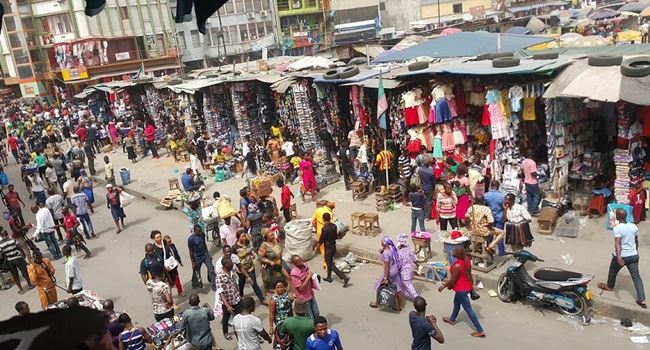The International Monetary Fund has said that Nigerians should brace up for higher food prices/ risks in 2023 due to recent floods and high fertilizer prices.
According to the National Bureau of Statistics, food inflation hit 23.72 per cent on a year-on-year basis in October 2022, with inflation on certain food items rising to between 50 – 100 per cent.
Despite that, the IMF has predicted that since recent floods have affected agricultural productivity, saying that food prices would worsen in 2023.
It added that the volatility in the value of the naira, the Federal Government’s continued dependence on the Central Bank of Nigeria for financing its budget deficit, and climate change were also risk factors.
The Washington-based lender disclosed this in its ‘Nigeria: Staff Concluding Statement of the 2022 Article IV Mission’ report seen by our correspondent at the weekend.
It said, “The effects of recent flooding and high fertilizer prices could become more entrenched impacting negatively both agricultural production and food prices in 2023.
“Similarly, further volatility in the parallel market exchange rate and continued dependence on central bank financing of the budget deficit could exacerbate price pressures. In the medium term, there are downside risks to the oil sector from possible price and production volatility, while climate-related natural disasters pose downside risks to agriculture.”
It added that despite Nigeria’s limited direct exposures, the war in Ukraine was affecting the nation through higher domestic food prices. The IMF said high food insecurity was compounding the pandemic’s effect on Nigeria’s vulnerable.
It stated that the nation’s headline inflation should moderate by the end of 2022 because of the start of the harvest season, although it also projected an increase in rice prices caused by recent flooding.
The IMF further stated that over the next 10 years, the nation would have to create about 25 million additional jobs. It said, “Strengthening the performance of the agricultural sector is key to job creation, food security, and social cohesion.
“Over the next decade, an estimated 25 million additional jobs will be needed to employ the new labor market entrants. For agriculture to continue playing a strong role in employment and ensure food security, boosting production and yields through improved input usage, especially through affordable fertilizers and higher quality seeds, better storage facilities and more coordinated policy support across government agencies are recommended.”
The NBS disclosed last Thursday that 133 million Nigerians were multidimensionally poor, with a significant portion of them lacking access to food security, healthcare, and education.





